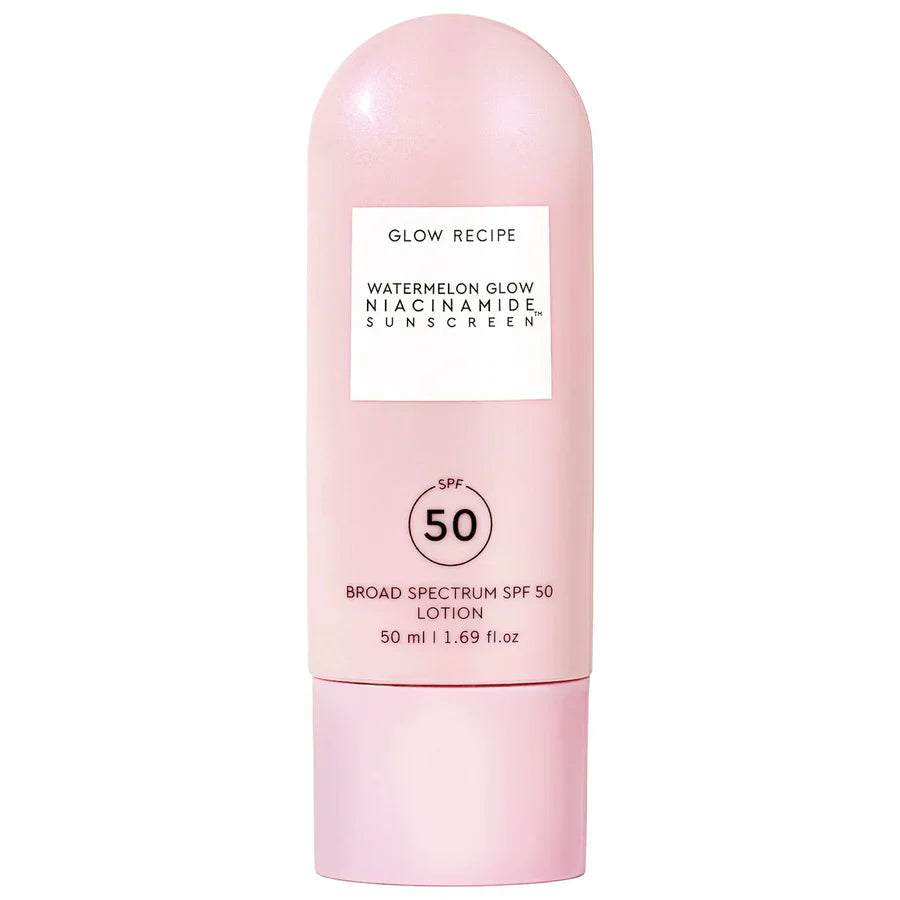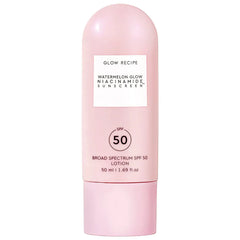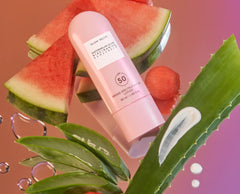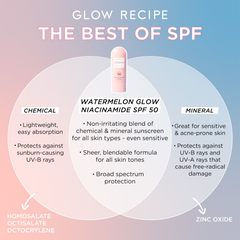Description
xIf there’s one universal skincare product out there, it’s sunscreen. No one gets a get-out-of-jail-free card from sun exposure, and a good sunscreen can make all the difference between skin that’s healthy and skin that’s…not. Speaking of a good sunscreen, that’s been the issue so far; a formula that lives up to the hype has been incredibly hard to find, with past iterations looking chalky, feeling goopy, and generally not being enjoyable to use — despite providing that all-important protection.
But that’s no longer the case, as we’re finally debuting the product that’s been most requested by our Glow Gang. We’re so proud to introduce Watermelon Glow Niacinamide Sunscreen SPF 50, the sunscreen you’ll actually want to wear. Designed to accommodate all skin tones and concerns, deliver a lightweight, blendable feel, and offer legit skincare benefits — all while providing unmatched sun protection — it checks all the boxes for a good sunscreen, proving that the unicorn formula does, finally, exist.
Of course, you know we couldn’t make just any sunscreen (just like we couldn’t make just any moisturizer or dark spot serum). Rather than choosing between chemical and mineral sunscreen ingredients, which come with their own pros and cons, we went with a hybrid that gives you the best of both worlds. Then, we couldn’t not include some of our favorite, skin-supporting ingredients, such as hyaluronic acid, niacinamide, and aloe — which work overtime to hydrate, brighten, and soothe. They all come together in a lightweight texture that seamlessly blends into all skin without leaving behind a telltale white cast, cloying scent, or greasy residue. With that, here’s what you need to know.
What’s Inside
First and foremost, let’s talk sunscreen filters, which give the formula its SPF 50 sun protection. Rather than try to choose between chemical and mineral filters, as so many do, we’ve found that strategically pairing both chemical and mineral filters can offer not only the best defense, but the best experience, too. The chemical filters in this particular formula— homosalate, octisalate, and octocrylene — act like a sponge, absorbing the sun’s harmful rays so that they don’t reach your skin.
Mineral (or physical) filters, on the other hand, work by creating a physical barrier over skin’s surface, which can then reflect, scatter, and absorb UV light; common ones include zinc oxide and titanium dioxide, although you’ll only find the former here.
- Choosing a selection results in a full page refresh.






